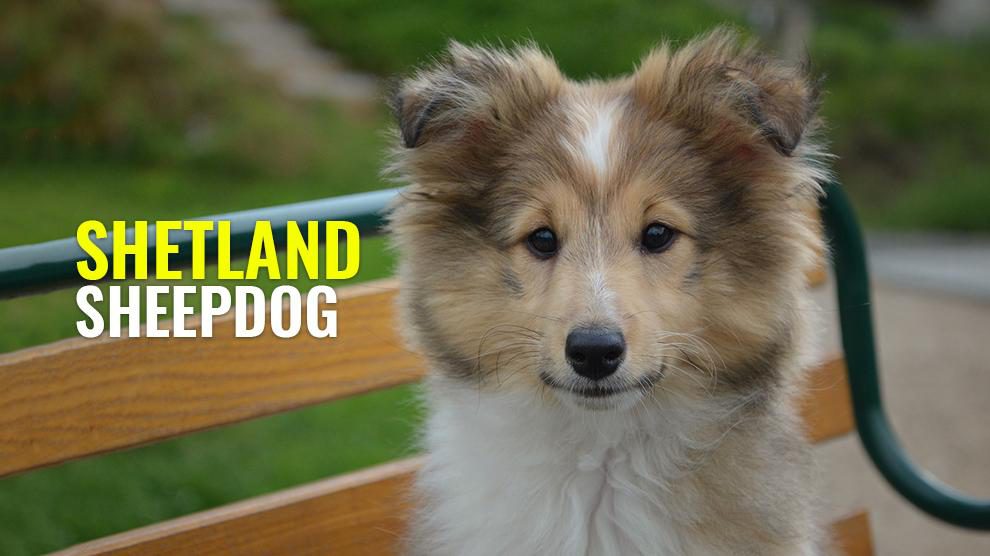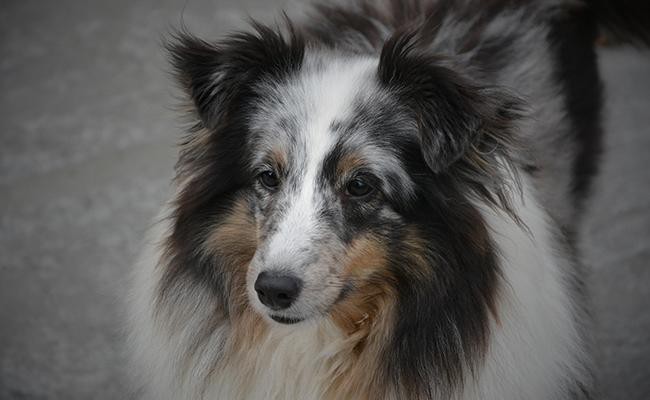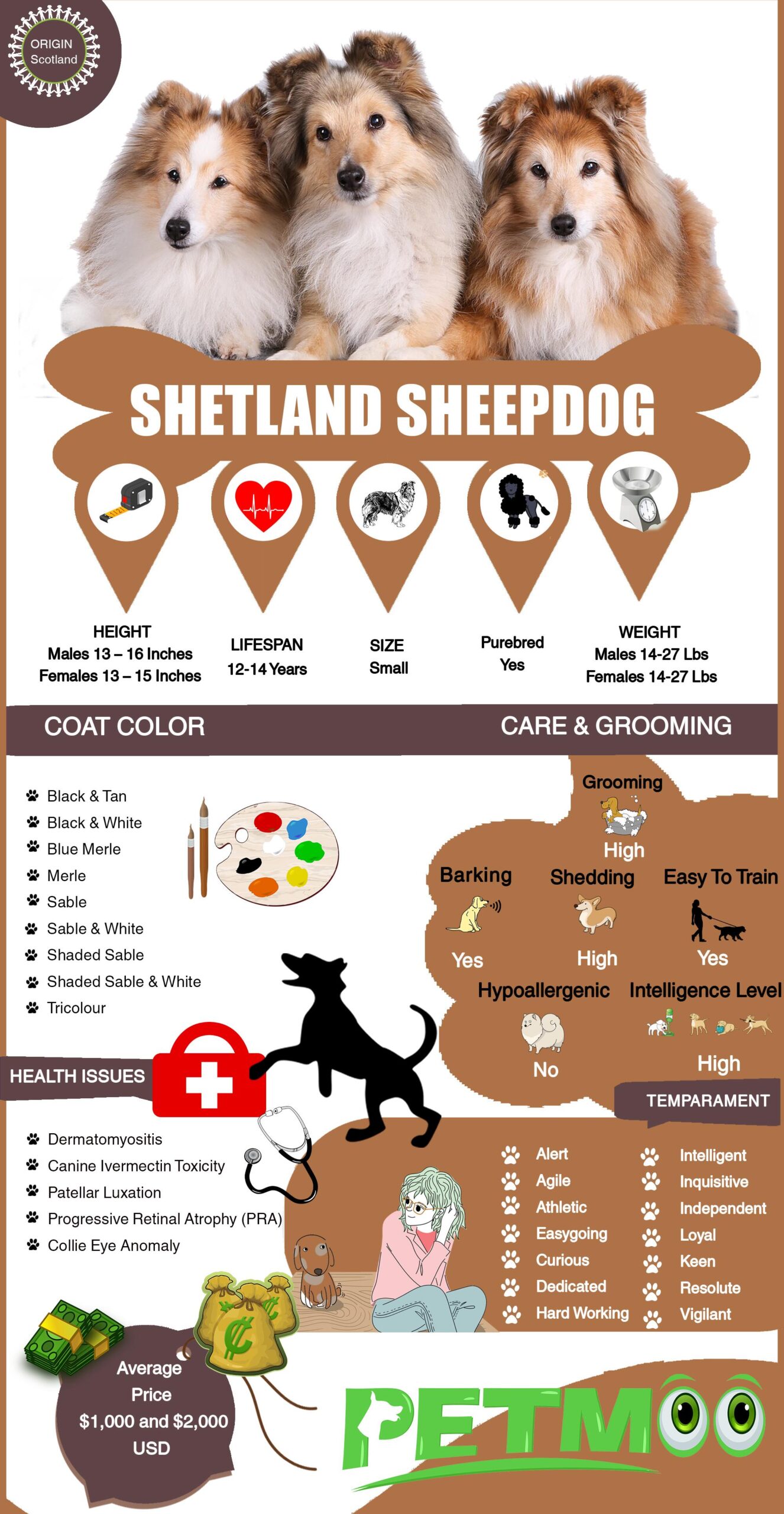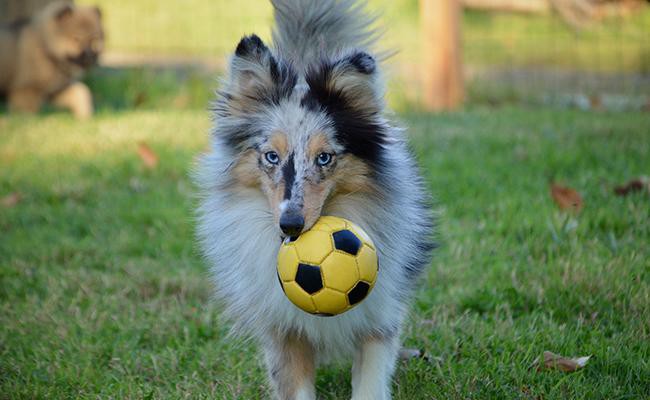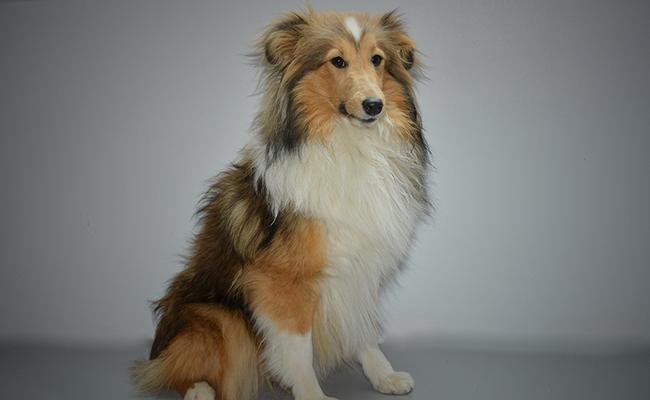Dog Pregnancy Calculator And Timeline
The Shetland Sheepdog, often referred to as the Sheltie, is a small to medium-sized herding dog that originated in the Shetland Islands of Scotland.
Known for their intelligence, agility, and loyalty, Shetland Sheepdogs have become popular pets and competitive show dogs around the world.
Shetland Sheepdog Breed Characteristics
- Origin: Scotland
- Size: Small
- Dog Breed Group: Herding (FCI, AKC, CKC, UKC), Pastoral (KC)
- Purebred: Yes
- Lifespan: 12-14 Years
- Height: Males 13 – 16 Inches (33 – 40 Cm), Females 13 – 15 Inches (33 – 38 Cm)
- Weight: Males 6 – 12 Kg ( 14-27 Lbs) Females 6 – 12 Kg (14-27 Lbs)
- Coat Appearance: Thick Double Coat
- Coat Colors: Black & Tan, Black & White, Blue Merle, Merle, Sable, Sable & White, Shaded Sable, Shaded Sable & White, Tricolour
- Temperament: Alert, Agile, Athletic, Easygoing, Curious, Dedicated, Hard Working, Intelligent, Inquisitive, Independent, Loyal, Keen, Resolute, Vigilant
- Good With Children: Yes
- Intelligence Level: High
- Good With Pets: Yes
- Hypoallergenic: No
- Grooming: High
- Shedding: High
- Barking: Yes
- Suitable For Apartments: No
- Need For Exercise: High
- Easy To Train: Yes
- Good For First-Time Owners: Yes
- Health Issues: Dermatomyositis, Canine Ivermectin Toxicity, Patellar Luxation, Progressive Retinal Atrophy (PRA), Collie Eye Anomaly
- Litter Size: 4- 6 Puppies
- Average Price: $ 800 – $1000 USD (USA), £900 For KC Registered, £700 For Non-KC Registered
Shetland Sheepdog History
The Shetland Sheepdog’s history can be traced back to the 19th century. It is believed that they were developed by crossing the native working dogs of the Shetland Islands with small herding breeds brought by Norwegian fishermen.
These dogs were primarily used for herding and protecting small livestock, such as sheep and ponies, in the harsh and rugged terrain of the Shetland Islands. The breed’s intelligence and agility made them well-suited for this purpose.
Is Shetland Sheepdog, The Right Dog For You?
If you want a dog who…
- Is a conveniently sized, graceful, swift, and light-footed runner
- Has an attractive feathered coat that comes in a variety of striking colors
- Is smallish, clever, athletic, and animated
- Has a soft, sensitive, and sweet temperament
- Is peaceful with strangers and other pets
A Sheltie may be right for you.
If you don’t want to deal with…
- High exercise requirements and mental stimulation to prevent boredom
- “Separation anxiety” (destructiveness and barking) when left alone too much
- Shyness or fearfulness in some lines, or when not socialized enough
- Excessive sensitivity to stress and loud voices
- Instinctive herding behaviors (Chasing things that move) and Barking
- Frequent grooming requirements and heavy shedding
A Sheltie may not be right for you.
Shetland Sheepdog Size
Shetland Sheepdogs are considered a small to medium-sized breed. On average, males stand between 13 to 16 inches (33 to 41 cm) at the shoulder, while females are slightly smaller, ranging from 12 to 15 inches (30 to 38 cm).
Despite their compact size, they are well-muscled and agile, capable of covering ground with ease.
Shetland Sheepdog Lifespan
The average lifespan of a Shetland Sheepdog is around 12 to 14 years. However, with proper care, nutrition, and regular exercise, some Shelties have been known to live even longer.
As with any breed, genetics, environment, and overall health play a significant role in determining an individual dog’s lifespan.
Shetland Sheepdog Coat Color
- Black & Tan
- Black & White
- Blue Merle
- Merle
- Sable
- Sable & White
- Shaded Sable
- Shaded Sable & White
- Tricolor
Coat
They boast a beautiful, thick, double coat consisting of a straight, long, harsh topcoat. The undercoat is dense, short, and furry. The dense undercoat gives the entire coat its “standoff” quality.
The abundant mane and frill are particularly impressive in males, with well-feathered forelegs. The hind legs are covered profusely with hair above the hocks but below the hocks, they have smoother hair.
Shetland Sheepdog Temperament
Shetland Sheepdogs are known for their friendly, affectionate, and intelligent nature. They are highly trainable and eager to please their owners, making them a great choice for obedience competitions and other dog sports.
Their herding instincts may manifest in behaviors such as nipping at heels, so early socialization and training are essential to ensure proper behavior.
Shelties are generally good with children and get along well with other pets if properly socialized from an early age. They are loyal and devoted to their families, forming strong bonds with their owners.
They can be reserved with strangers, but they are not typically aggressive.
Who Gets Along With Shetland sheepdogs?
- Those who seek a good guard dog who will also interact with the family
- Family with kids
- Active household
- Houses in farms, country homes, or houses with large fenced-in yards perhaps, with flocks of animals.
Adaptability
- Apartment Living – No
- Good For First-Time Owners – Yes
- Sensitivity Level – High
- Loneliness – Low
- Cold Weather – High
- Hot Weather – Average
Friendliness
- With Family – High
- With Kids – High
- Other Dogs – High
- With Cats – Good, If Raised Together
- Other Pets – Good, If Raised Together
- Strangers – Average, Reserved
General Behavior
- Independence – Fairly Independent
- Dominance – Low
- Combativeness – Low
- Indoors – Highly Active
- Outdoor – Highly Active
- Territorial – Yes
- Easy Of Transportation – Very Good
Shetland Sheepdog Puppies Names
Shetland Sheepdog Male Puppy Names
- Alfie
- Brody
- Buddy
- Charlie
- Cooper
- Dulce
- Lucky
- Milo
- Max
- Spud
Shetland Sheepdog Female Puppy Names
- Chloe
- Daisy
- Gigi
- Hazel
- Heidi
- Girly
- Lucy
- Maggie
- Roxy
- Twiggy
Shetland Sheepdog Care
- Exercise Needs – High
- Intensity – Medium
- Activity Level – High
- Exercise Requirements – >45 Minutes/Day
- Walk Mileage/Week – 8 Miles
- Playfulness – High
- Grooming Needs – High
- Tendency To Drool – No
- Snore – No
- To Bark – Average
- Dig – Low
- Social/Attention Needs – High
To care for a Shetland Sheepdog (Sheltie), ensure regular exercise to keep them mentally and physically stimulated. Brush their double coat weekly to prevent matting and remove loose hair, with additional grooming during shedding seasons.
Provide a balanced diet and fresh water, and schedule regular veterinary check-ups. Socialize them from an early age to ensure they get along well with children and other pets.
Train them using positive reinforcement methods to harness their intelligence and willingness to please. Lastly, give them plenty of love, attention, and a safe environment to thrive in as a loyal and affectionate companion.
Shetland Sheepdog Training
- Trainability – Easy
- Intelligence – High
- Memory – High
- Mouthiness – Low
- Prey Drive – High
- Wanderlust Potential – High
Training is essential for Shetland Sheepdogs (Shelties) to channel their intelligence and energy effectively. Begin with basic obedience commands like sit, stay, and come.
Use positive reinforcement techniques such as treats, praise, and rewards to motivate and encourage them. Consistency, patience, and positive reinforcement are key to their training success.
Engage them in mental stimulation activities like puzzle toys and interactive games to prevent boredom. Socialize them from an early age to ensure they are comfortable with various environments, people, and animals.
Consider enrolling them in obedience classes or working with a professional dog trainer to enhance their training skills.
Shetland Sheepdog Food
A nutritious diet is crucial for the health and well-being of Shetland Sheepdogs (Shelties). Choose high-quality dog food that is specifically formulated for their size, age, and activity level.
Look for a balance of protein, carbohydrates, and fats. Avoid artificial additives, fillers, and by-products. Feed them in measured portions to maintain a healthy weight.
Shelties can be prone to food allergies, so monitor their reactions to certain ingredients. Consult with your veterinarian to determine the best feeding schedule and dietary requirements for your Shetland Sheepdog. Remember to provide fresh water at all times to keep them hydrated.
Shetland Sheepdog Grooming
- Coat Density – Dense
- Coat Length – Long
- Coat Texture – Straight
- Brushing Frequency – Weekly
- Trimming/Stripping – No
- Hypoallergenic – No
- Shedding – Average
Proper grooming is essential for Shetland Sheepdogs (Shelties). Brush their double coat at least once a week to prevent matting and remove loose hair. During shedding seasons, increase brushing frequency.
Pay attention to the feathering on their legs, chest, and tail, as these areas are more prone to tangling. Trim their nails regularly and clean their ears to prevent infections.
Bathe them as needed, using a dog-specific shampoo. Consider professional grooming for more intricate trims, such as around the ears and paws.
Grooming not only keeps their coat healthy but also strengthens the bond between you and your Sheltie.
Shetland Sheepdog Health Issues
Shetland Sheepdogs are prone to certain health issues.
Some of the common health concerns associated with the breed include:
- Progressive Retinal Atrophy (PRA): This is a hereditary eye disease that leads to gradual vision loss and, in severe cases, blindness.
- Collie Eye Anomaly (CEA): It is a congenital eye condition that can cause various abnormalities in the eye, ranging from mild to severe.
- Hip Dysplasia: This is a common orthopedic condition that affects the hip joint, leading to lameness and pain.
- Von Willebrand’s Disease: It is a blood clotting disorder that can cause excessive bleeding and prolonged bleeding time.
- Dermatomyositis: A hereditary skin disease that causes inflammation and muscle weakness.
Shetland Sheepdog Price
The price of a Shetland Sheepdog can vary depending on various factors such as the breeder’s reputation, the bloodline of the dog, geographical location, and the dog’s overall quality.
On average, you can expect to pay between $800 to $1500 for a Sheltie puppy from a reputable breeder. Show-quality or puppies from champion bloodlines may be priced higher.
It’s important to note that the initial cost of acquiring a Shetland Sheepdog is just the beginning.
Owning a dog comes with additional expenses such as vaccinations, regular veterinary check-ups, food, grooming supplies, training, and potential medical treatments.
It’s essential to be financially prepared to provide for the lifelong needs of your Sheltie.
Shetland Sheepdog Breeders
When looking for a Shetland Sheepdog breeder, it’s crucial to do thorough research and find a reputable one.
A reputable breeder follows responsible breeding practices, prioritizes the health and well-being of their dogs, and is knowledgeable about the breed.
They will provide proper medical care, socialization, and a healthy environment for their puppies.
To find a reputable breeder, consider reaching out to local Shetland Sheepdog clubs or organizations. They can provide recommendations and connect you with breeders who adhere to ethical breeding standards.
Additionally, attending dog shows or events can be an opportunity to meet breeders in person and see their dogs.

Click here to find Shetland Sheepdog breeders in the USA.
Conclusion
The Shetland Sheepdog is a delightful and intelligent breed that makes a wonderful companion for individuals and families alike.
With their loyalty, agility, and trainability, they excel in various dog sports and activities. However, potential owners should be prepared to invest time and effort into their grooming needs and provide regular exercise and mental stimulation.
When considering adding a Shetland Sheepdog to your family, be sure to research reputable breeders, inquire about health testing, and ask about the lineage of the puppies.
Remember that responsible ownership goes beyond the initial purchase price, as it involves providing a loving and caring home for the entirety of your Sheltie’s life.
With their loving nature and striking appearance, the Shetland Sheepdog is undoubtedly a breed that brings joy and companionship to those fortunate enough to share their lives with one another.

